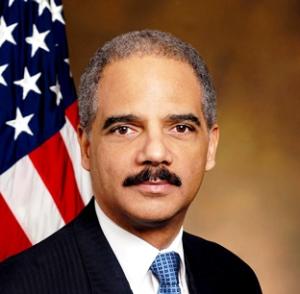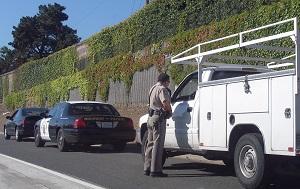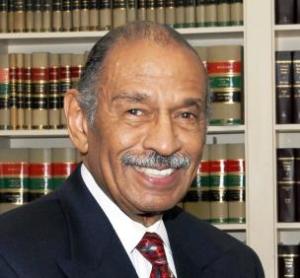This article was published in collaboration with AlterNet.

State and local law enforcement agencies routinely resort to "adoption" as a means of circumventing state laws that mandate seized assets go to designated programs, typically a state's general fund or education fund. When a seizure is "adopted" by the feds, the seizing agency gets to keep 80% of the proceeds, with the federal government getting the rest.
"With this new policy, effective immediately, the Justice Department is taking an important step to prohibit federal agency adoptions of state and local seizures, except for public safety reasons," Holder said in a statement. "This is the first step in a comprehensive review that we have launched of the federal asset forfeiture program. Asset forfeiture remains a critical law enforcement tool when used appropriately -- providing unique means to go after criminal and even terrorist organizations. This new policy will ensure that these authorities can continue to be used to take the profit out of crime and return assets to victims, while safeguarding civil liberties."
While much asset forfeiture activity is related to drug cases, they are not included in the list of exceptions to the new policy barring "adoptions." Those public safety exceptions include firearms, ammunition, explosives, and materials related to child pornography.
The new policy does not impact asset forfeitures conducted by federal law enforcement, nor does it bar state and local law enforcement from conducting civil asset forfeiture under state law.

Holder's move Friday is the boldest step to roll back sweeping police powers to seize goods and property since federal asset forfeiture began as tactic in the war on drugs in the 1980s. The Justice Department adopted the Equitable Sharing program in 1993.
Civil asset forfeiture -- the seizure of goods or property without having obtained a criminal conviction -- has come under increasing fire in recent years. Several asset forfeiture reform bills were filed in the last Congress, one has already been filed in the new Congress, and members from both parties are working jointly to draw up a bill to reform civil asset forfeiture.
The issue brought together libertarian-leaning groups like the Institute for Justice, which produced the highly critical study "Policing for Profit: The Abuse of Civil Asset Forfeiture," and left-leaning groups like the ACLU to press for reforms. They met with congressional staffers to seek changes last fall.
Just last Friday, a bipartisan group of legislators including Sen. Charles Grassley (R-IA) and Rep. John Conyers (D-MI) sent a letter to Holder calling on him to end the Equitable Sharing program.
Pressure mounted after a Washington Post investigative piece published in September found police had seized nearly $2.5 billion in cash from motorists without search warrants or indictments since September 11, 2001. In that investigation, the Post found that police routinely stopped drivers for minor traffic violations, then intimidated them into agreeing to warrantless searches and seized cash without evidence of criminal misconduct.

And now, the administration is in effect taking money out of their pockets. More than 7,500 of the nation's 18,000 state and local police departments and joint task forces have participated in the Equitable Sharing program. And hundreds of departments and sheriff's offices have seizure proceeds accounting for more than 20% of their budgets.
The move will also hurt federal agencies that have been "adopting" the seizures, particularly the DEA and ICE. Federal law enforcement has pocketed $800 million under Equitable Sharing seizures without arrests or convictions since 2001.
This is the second major asset forfeiture reform at the federal level. Spurred by reports of abuses of asset forfeiture in the late 1990s, Congress passed the Civil Asset Forfeiture Reform Act of 2000. That bill originally contained a provision "ending the sharing of seizure proceeds between local police and federal agencies," but it was removed in the face of fierce opposition from police and prosecutors.
Since 9/11, with calls by federal officials for state and local law enforcement to surveil the nation's highways looking not only for drugs, but now for terrorists, the program only expanded. It didn't help that the Justice Department and the Department of Homeland Security paid out millions to private companies to teach police officers aggressive highway interdiction techniques emphasizing the importance of seizing cash.
The Equitable Sharing program and the aggressive interdiction techniques created what lawmakers a decade-and-a-half ago called "a perverse incentive" for police to concentrate more on seizing cash than seizing drugs. Now, Holder has butchered the cash cow.
This work by StoptheDrugWar.org is licensed under Creative Commons Attribution-ShareAlike 4.0 International
Comments
Hats off to Holder
Well, Well... I can still remember AG John Ashcroft saying he intended to ramp UP the War on Drugs! White Power knew what it was doing all along... Thank god we got some Black Power going on finally, get some things straightened out around here! I don't assume Holder did it because he's black, I assume he did it because he (and I, and the rest of the civilized universe) oppose white cracker criminal cops stealing money!!!
I savor these moments.
Add new comment